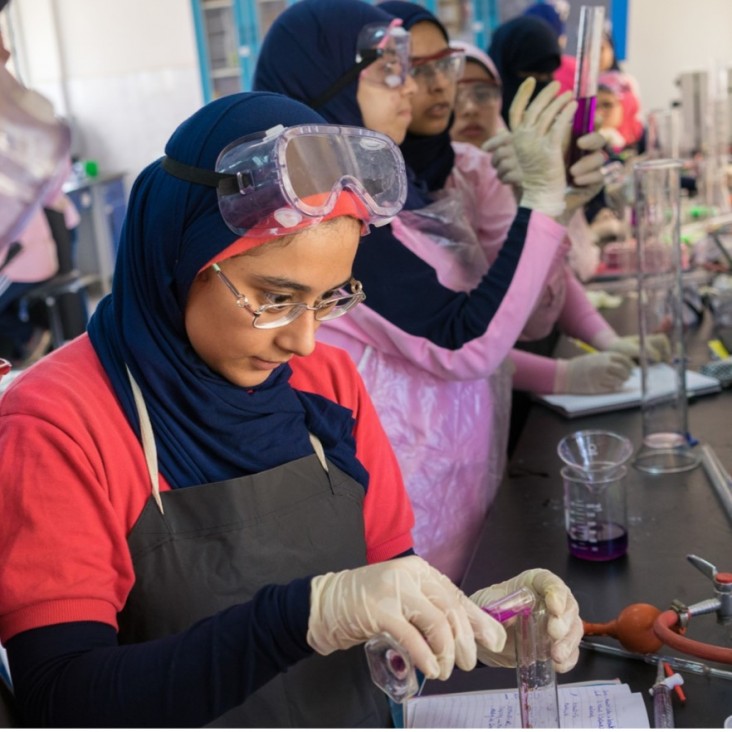
Overview
Basic education is fundamental to economic opportunity and gender equality. With the largest school system in the Middle East (over 18 million students), Egypt provides near-universal access to primary education. Boys and girls attend school at nearly equal rates, and enrollment is rising steadily at both the intermediate and secondary levels. However, rapid population growth has placed inordinate strain on the system. With one third of the population under the age of 15, the supply of schools and trained teachers simply cannot keep up. Moreover, instruction remains focused on helping students pass exams rather than on developing critical thinking and practical skills and virtually no primary school teachers have practical training before entering the classroom.
To help Egypt cope with this explosive growth, USAID works with the Ministry of Education (MOE) to align its education system more closely with the needs of a modern economy. This includes improving the quality of teachers and supporting Egyptian government efforts to implement education programs that develop critical thinking and practical skills of primary and secondary school students.
USAID is enhancing Egypt’s talent pool and competitiveness by piloting and expanding science, technology, engineering, and math (STEM) education in secondary schools. Two pilot STEM high schools that USAID helped establish in Cairo have been so successful that the government is scaling up this program nationwide and establishing STEM schools in all 27 governorates. For the 2015-16 school year there were 4,300 students from around the country that applied for approximately 1,000 places in the seven newly established STEM schools.
USAID worked with the MOE to improve reading and mathematics in primary schools nationwide. The MOE has demonstrated strong commitment to expand, across all of Egypt, a pilot USAID-funded Early Grade Reading Program. To support this expansion, USAID provided technical assistance to the MOE to build integral and sustainable early grade reading and math systems, with a focus on improving curriculum and materials, and strengthening teacher professional development.
Current Activities
Science, Technology, Engineering and Mathematics (STEM) School Project: In collaboration with the MOE and other stakeholders, USAID partnered with the Ministry of Education to establish STEM high schools (grades 10-12) in Maadi and 6 October City. The model has already been replicated in 7 additional governorates with a plan for expansion nationwide. The schools provide project-based and inquiry based education, focused around enhancing students’ critical thinking, problem solving and scientific research. While the MOE constructs, furnishes, and operates the schools, USAID provides training and capacity building for the MOE to sustain this program. USAID also supports curriculum and assessment development and provides science labs and essential technology infrastructure to support experiential learning. The project trains teachers and administrators of these high schools to develop and test innovative STEM teaching methods, curriculum, and student assessment system. USAID and the Egyptian government aim to transform the current pilot STEM high schools into a collaborative STEM network that serves as a catalyst for change, not only for future STEM schools, but also for nationwide improvements in math and science secondary education. Implementing Partner: World Learning; Life of Project: August 28, 2012-August 27, 2017; Total Estimated Cost: $25 million; Bilateral Agreement: Basic Education II.








Comment
Make a general inquiry or suggest an improvement.